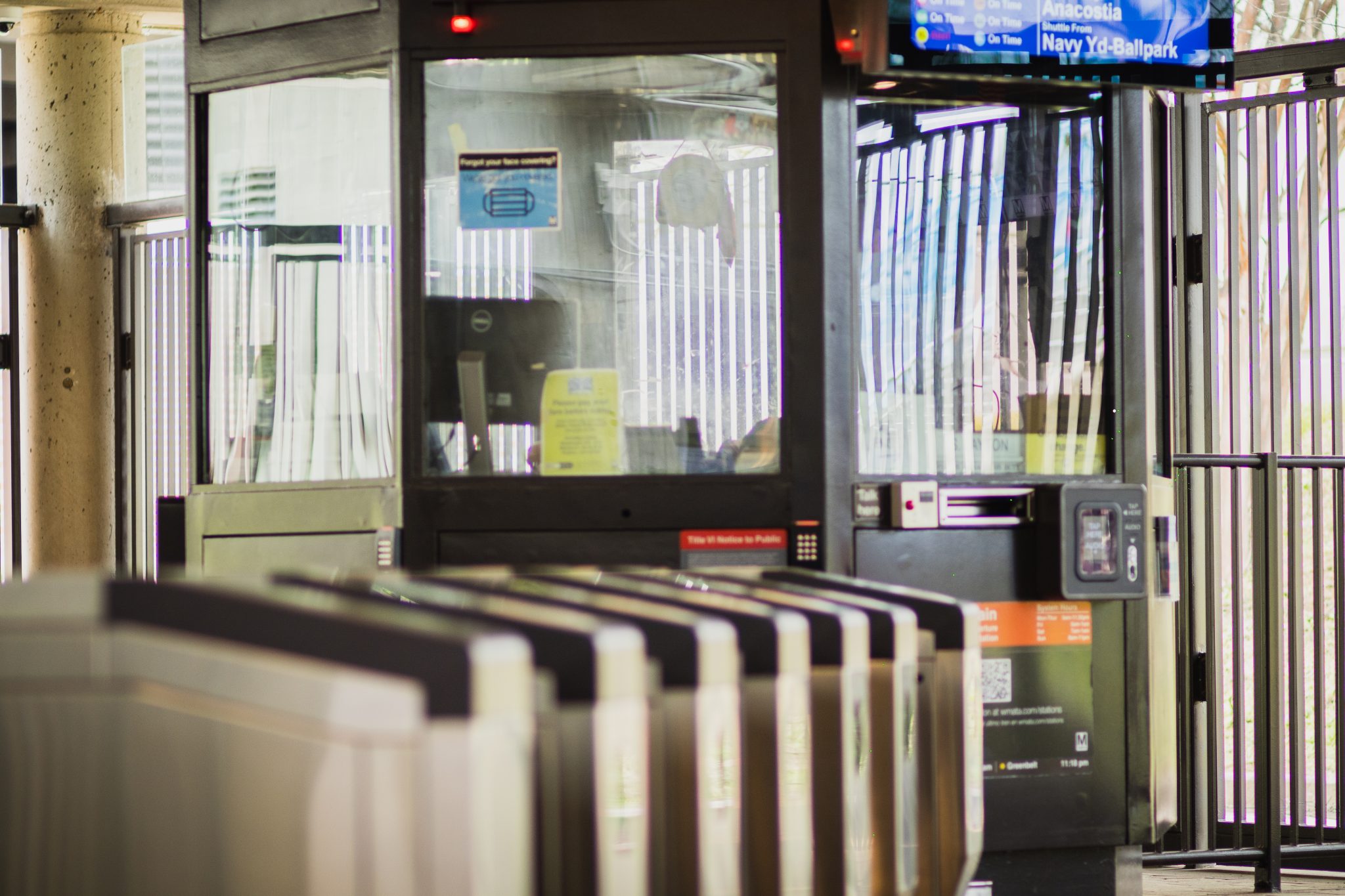The Washington Metropolitan Area Transit Authority’s approved 2024 fiscal year budget looks to increase distance-based fares for Metro trains and provide more assistance to low-income riders — a change that has elicited both praise and concern from some commuters.
WMATA’s board of directors approved the $4.8 billion fiscal year 2024 budget on April 14, which included the agency’s first Metro fare hike in five years.
An average Metro rail trip price will increase by about three percent beginning July 1. Some of the revenue from the fare hike will fund a new program that will offer discounts for riders registered for the federal Supplemental Nutrition Assistance Program.
The fare hike applies to charges that begin after three miles of travel. The current base rate will increase from 21 or 33 cents per mile, depending on time of day, to a flat 40 cents per mile on weekdays before 9:30 p.m.
Pricing for weekday rides after 9:30 p.m. and all weekend rides will continue to have a flat cost of $2. The maximum fare will remain at $6.
Hiroyuki Iseki, an associate professor of urban studies and planning at the University of Maryland’s architecture, preservation and planning school, said WMATA’s new fare structure will help balance equity in funding.
[Students struggle with summer transportation ahead of looming Metro closures]
None of the public transportation agencies in the United States make a profit, Iseki said. Fare revenue only covers about one third of operating costs for most agencies, he added. The majority of agencies’ rely on government subsidies to cover their costs, Iseki said.
WMATA’s new fare system is a good start for a model that will close funding deficits while making transportation equitable, according to Iseki. Some public transit customers can pay fares easily, while low-income customers feel the burden of paying higher fares to a greater degree, Iseki said. Therefore, providing a discounted fare for low-income customers will help improve equity in the system.
“The important point is we did not give the discount fare to everyone,” Iseki said.
Under other changes in the approved budget, Green Line service from the College Park station will occur every six minutes instead of every eight minutes like it does currently, according to a WMATA press release.
Some students who use the Metro to get to jobs and internships said the fare hike will have a negligible effect, especially combined with this improved train frequency.
“I think I’m not going to notice [the fare hike]. That seems very little,” said Jacklyn Meyers, who graduated from this university in 2022 and commutes from College Park to Washington D.C. for an internship.
Apoorva Ajith, a junior behavioral and community health and environmental science and policy major at this university, uses the Metro once or twice a week to commute to her part-time job at Union Market in Washington, D.C.
[McLean-based software company Empower looks to challenge Uber, Lyft]
Ajith does not think the fare hike will affect her much, but paying the maximum fare to get to and from work does cost her roughly $12. That’s about what she makes in an hour at her job, which is strange to contend with, Ajith said.
“Even with the price increases, I would still be taking the metro regardless, but [the cost increase] is definitely something to consider,” Ajith said. “Especially with the summer coming up, I’m sure a lot of people have plans of accepting internships in various places and I’m sure a lot of people want to intern in D.C. so it’s something for people to be aware of.”
The price change announcement comes as Metro works to bounce back from the COVID-19 pandemic. WMATA faced a $500 million budget deficit from a pandemic-induced ridership decline in November 2020, which caused it to consider closing stations, limiting train frequencies and firing employees.
In March 2023, ridership hit a post-pandemic high of 318,000 trips in a single day — beating the previous daily record set in October 2022. But that figure is still less than half of the average ridership Metro saw in February 2020, which was 638,000 trips on weekdays.
Senior communication and philosophy, politics and economics major Gabby Cohen considers the fare hike a good move from WMATA because of the reasoning behind it. Cohen would not support the fare hike if it was just to increase train frequencies, but the hike is justified because it benefits low-income riders, Cohen said.
“It’s going to people who need it more than I do,” Cohen said.



